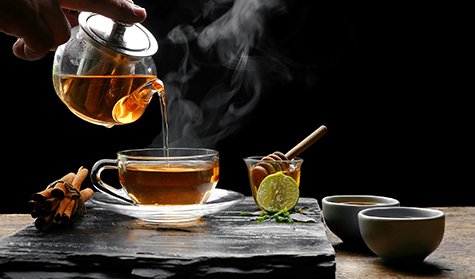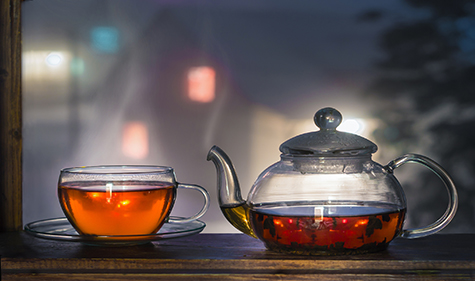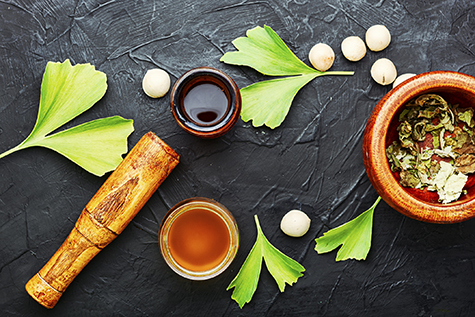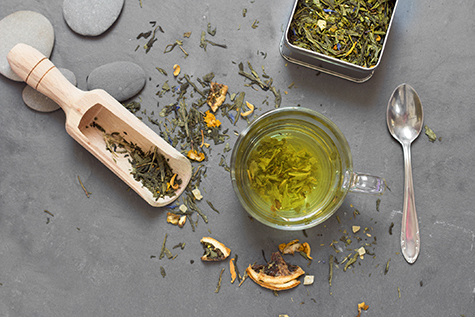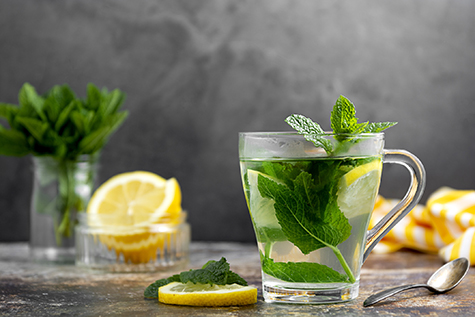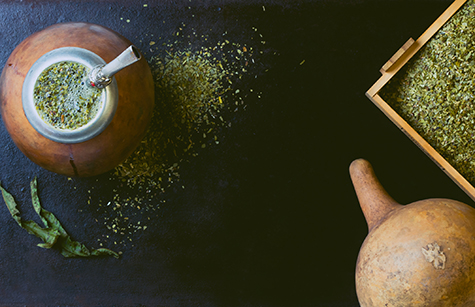Try the Top 5 Teas for Boosting Your Energy

Teas have the incredible ability to boost your energy so if you’re seeking a more vibrant feeling, consider enjoying a hot cup of tea before you try anything else. Alongside coffee, tea is one of the world’s most popular beverages and for good reason. The best teas for energy are often those with a slight boost of caffeine as well as other herbal varieties because of the stimulating effects that the compounds have for your senses. While some teas may provide a sense of energy, alertness, or focus, they also have other health benefits. All tea is hydrating which can immediately make you feel more alert. This is the FoodTrients® list of top 5 teas that are best for energy and the reasons why you should include them today for your health.
1. Black tea
Black tea comes from the Camellia sinensis plant and is commonly blended with other plants or oils to create different flavors, such as Earl Grey, chai, or English Breakfast. It’s the tea with the most caffeine content (but less caffeine than coffee) and one of the strongest flavors. Black tea’s caffeine and antioxidant L-theanine are what gives the impact of alertness and focus. It also has polyphenols (a group of antioxidants) that may benefit your heart health and decrease the risk of chronic diseases. Enjoy this tea in the morning for an energetic start to your day.
2. Ginkgo tea
Ginkgo Biloba, also known as maidenhair, is a tree that originated from China. It has been used in traditional Chinese medicine for centuries and is now a common dietary supplement in Western countries. When used as a tea, you can enjoy its mild fragrance and delicate flavor. It is commonly blended with other herbs (think licorice, lemon peel or cinnamon) to enhance its taste. Some studies show its efficacy in memory support and cognition, alertness, and even a feeling of calm. By improving the mood with that alert/calm balance, though it’s devoid of caffeine, it may increase a sense of energy for a confident start to your day.
2. Green tea
While green tea doesn’t contain as much caffeine as coffee or black tea, it does have L-theanine, which is a compound that impacts energy and alertness. L-theanine slows down the body’s absorption of caffeine, providing longer energy without the jitters or ‘crash’ that’s commonly associated with drinking coffee. Green tea has also been shown to have antiviral properties and support the immune system; perfect for winter months. It is so rich in antioxidants, namely “EGCG” which have heart health, brain health, potentially anti-aging and anti-cancer effects as well.
3. Peppermint tea
Peppermint tea is a refreshing herbal tea, known for invigorating the senses. Research shows it may increase alertness and have the ability to enhance memory. This is a great choice for those who want to avoid caffeine because it’s completely devoid of that stimulant. The lack of caffeine makes it suitable to drink any time of day and night so it could be perfect for a late night of studying or working on projects. When you enjoy a cup of peppermint tea, take the time to breathe in the aroma for added alertness.
4. Yerba Matte
Originally from South America — specifically Argentina — yerba matte tea has been consumed for centuries to boost energy. It contains additional nutrients like vitamin A, B1, B2, C and minerals such as magnesium, potassium, calcium, iron, and riboflavin. The tea leaves are rich in tannins, giving it a slightly bitter and earthy flavor. It has a comparable amount of caffeine to coffee, so for those looking to steer away from coffee but still need a dose of caffeine, yerba matte may be your best bet!
While drinking tea has a plethora of health benefits, it also has some downsides. The tannins in tea may have antioxidant and anti-inflammatory properties, but they may also impair certain digestive processes. Tannins may hinder your ability to absorb iron in plant-based foods and could cause nausea if consumed on an empty stomach. To avoid these issues, try avoiding drinking tea with iron-rich foods or supplements. Be aware of excessive caffeine intake but overall, tea is an easy-to-make beverage option that may provide many health benefits.
If you are already practicing healthy lifestyle habits such as regular exercise, adequate sleep, maintaining good hydration status, and eating a balanced diet, incorporating these teas into your daily life could enhance your energy levels. Make sure to work with your doctor or dietitian to see if herbal remedies could be safe and effective for you.
What teas do you use for energy?
References
Meredith SE, Juliano LM, Hughes JR, Griffiths RR. Caffeine Use Disorder: A Comprehensive Review and Research Agenda. J Caffeine Res. 2013;3(3):114–130.
Gaeini Z, Bahadoran Z, Mirmiran P, Azizi F. Tea, coffee, caffeine intake and the risk of cardio-metabolic outcomes: findings from a population with low coffee and high tea consumption. Nutr Metab (Lond). 2019;16:28. Published 2019 May 3.
Smith SC. Multiple Risk Factors for Cardiovascular Disease and Diabetes Mellitus. Am J Med. 2007.
Janet Bryan, Psychological effects of dietary components of tea: caffeine and L-theanine, Nutrition Reviews, Volume 66, Issue 2, 1 February 2008, Pages 82–90.
Ravikumar C. Review on herbal teas. Journal of Pharmaceutical Sciences and Research. 2014 1;6(5):236.
Fox M, Krueger E, Putterman L, Schroeder R. The Effect of Peppermint on Memory Performance. Journal of Advanced Student Science. 2012;1:1-7.
Mix, J.A. and David Crews, W., Jr. (2002), A double‐blind, placebo‐controlled, randomized trial of Ginkgo biloba extract EGb 761® in a sample of cognitively intact older adults: neuropsychological findings. Hum. Psychopharmacol. Clin. Exp., 17: 267-277.
